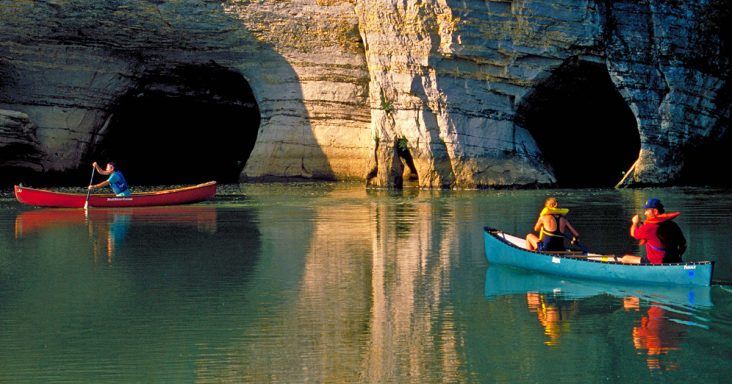Arkansas’ tourism industry handles COVID-19 better than other states; leisure, hospitality industry most affected in state
by April 22, 2020 5:20 pm 4,542 views

The tourism industry in Arkansas looks to be faring the COVID-19 pandemic better than other states, but the health crisis is expected to have the biggest impact on the leisure and hospitality industry, studies show.
The University of Arkansas’ Center for Business and Economic Research (CBER) at the Sam M. Walton College of Business released Wednesday (April 22) a report showing the pandemic will most affect the hospitality and leisure industry as well as the economies of smaller cities and rural areas. Economic recovery might take longer for those cities and areas than larger metro areas in the state, according to the report.
CBER Director Mervin Jebaraj said some parts of the state will have a harder time recovering from the pandemic and the slowdown, or near shutdown, for many businesses.
“I think all parts of the state are going to be affected to some degree, but parts of the state that were struggling economically – the smaller metro areas and non-metro areas – are going to see sharper declines than some of the better performing larger metros that may have enough infrastructure to withstand the effects of this crisis,” Jebaraj said. “Areas of the state that are very dependent on the hospitality sector will also see some prolonged pain, as people might remain hesitant to plan recreational travel with uncertainties about cancellations from the virus resurging.”
‘CAREFUL MANAGEMENT’
Some states are developing plans to start reopening business and restart their economies in a few weeks, and Jebaraj said how quickly the Arkansas economy rebounds once restrictions are eased and people look to recovery will depend on “careful management and foresight.”
“If this was a short shutdown, then yes we will be able to come back quickly,” he said. “Unfortunately, since we still don’t have enough tests for the population or a vaccine, our only means of containing the spread of the virus is to maintain effective physical distance by closing most businesses with public accommodations.
“It is vital that the federal government step in with support for businesses to remain viable during this time,” he added. “If they don’t, and businesses are allowed to go bankrupt or close, the recovery will be prolonged and painful.”
Some sectors of the national economy are expected to weather the crisis better than others, but those that should make it through in good shape might not be in Arkansas.
“All the sectors related to warehousing, delivery of goods and services to homes, telecommunications and in-home entertainment will see faster growth during this crisis,” Jebaraj said. “Unfortunately for Arkansas, most of the major players in these sectors are not clustered in our state.”
Jebaraj expects discount grocery stores and e-commerce to experience a large volume of activity, but this might be a result of replacing demand from other aspects of these businesses. The leisure and hospitality industry, including restaurants, bars, hotels and gyms, and personal care services, such as salons and massage therapy, will be the worst affected industries, he noted.
Gov. Asa Hutchinson will decide on whether to open the following businesses on the dates below:
• Restaurants, April 29
• Gyms, April 30
• Beauty and barbershops, May 1
• Large venues and churches, May 4
NATIONAL COMPARISON
The tourism industry in Arkansas looks to be the least impacted by the pandemic compared to the same industry in the rest of the United States, according to a recent study by financial technology company WalletHub. Arkansas was last (No. 51) among states, including the District of Columbia, with the most impacted tourism industry as a result of the pandemic, the study shows.
“Some of the reasons why Arkansas has the least impacted tourism industry include the fact that it has a small share of employment in travel and tourism-related industries, as well as a low share of travel and tourism generated GDP,” WalletHub analyst Jill Gonzalez said. “The share of consumer expenditures on travel in Arkansas is the third-lowest in the country, at just 2.8%, and the amount of travel spending per travel employee is also among the smallest nationwide. The fact that the state has not been very aggressive against the coronavirus and has not adopted a stay-at-home order also contributed to its overall ranking.”
Ten metrics were used to identify where tourism is most affected by COVID-19, and a state’s aggressiveness against coronavirus accounted for 15% of the final result, according to WalletHub. The remaining factors related to a state’s dependency on the travel and tourism industry, including metrics such as the share of businesses in the travel and tourism-related industries, the share of employment in travel and tourism-related industries and travel and tourism consumer spending per capita.
Hawaii, Montana, Nevada, Vermont and Massachusetts were the top five states with the most impacted tourism industry. After Arkansas, other states with the least impacted tourism industry were Iowa, Oklahoma, Nebraska, Alabama and Wisconsin.
